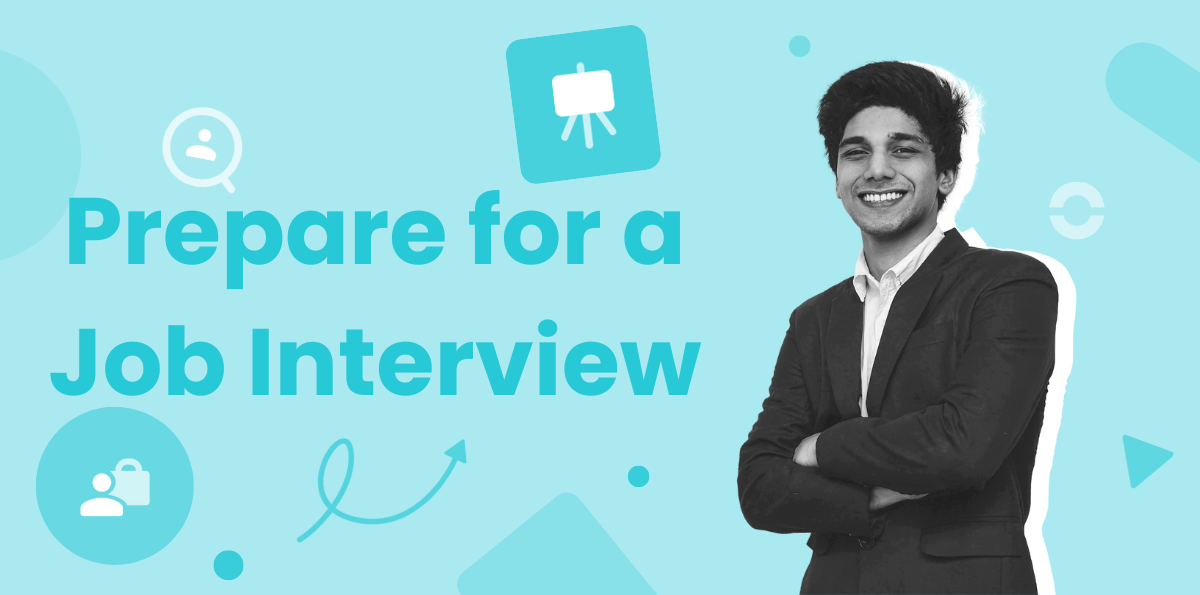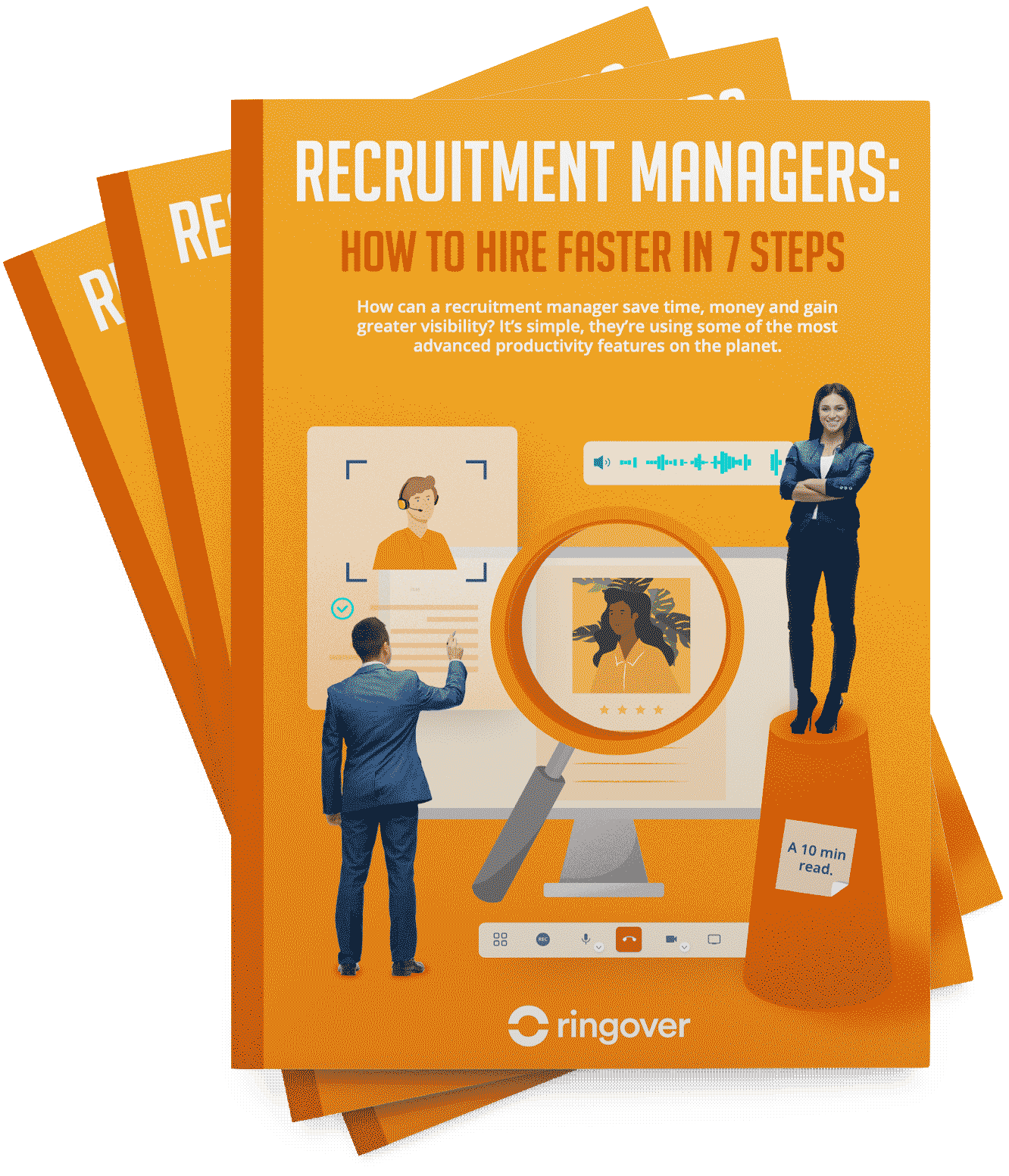Summary
Congratulations, you are about to conduct an interview with a promising candidate! However, the path to a successful hire is not yet complete. It is crucial to ensure that the candidate is the perfect fit for the position.
Meticulous preparation is necessary to succeed in a job interview, as it represents a decisive moment in the recruitment process.
In this article, you will discover essential tips for excelling in your job interviews. We will discuss strategies to adopt and pitfalls to avoid. Additionally, we will point out practical tools to optimize your preparation.
Whether you are at the beginning of your recruiting career or an experienced professional, these recommendations will help you identify and recruit the ideal candidate for your company.
Prepare for a Job Interview as a Recruiter
As a recruiter, your key role is to find the perfect candidate for the position offered. This requires setting up an interview that is both effective and targeted, allowing you to accurately assess each candidate's skills, personality, and motivation.
Here are the essential steps to orchestrate a successful job interview as a recruiter.
The first step is to have a thorough understanding of the position to be filled. This means grasping the company's needs, defining essential skills, responsibilities, and specifics of the role.
It is also crucial to familiarize yourself with the company culture, its values, and vision, to ensure that the candidate can not only understand but also share them, thus facilitating their integration into the team.
The structure of the interview is as follows: start by analyzing the resume and cover letter to identify important experiences and skills. With the candidate's consent, contact their references to verify the information provided and enrich your understanding of their profile.
Then prepare a series of precise questions, oriented around the job requirements, the candidate's expectations, and their ability to handle complex situations.
For the organization of the interview, choose a calm and welcoming location conducive to a serene exchange. The candidate's reception should be both warm and professional so that they feel comfortable and valued.
Conduct the interview by respecting the established timeframe, asking your questions in a targeted manner, and actively listening to the responses. Take notes, summarize key points, and encourage the candidate to ask questions.
By following these steps, you will optimize your interview process, positioning yourself to identify and recruit the ideal candidate for your team.
Conducting the Job Interview: What to Do
Conducting a job interview requires a professional, respectful, and considerate attitude toward the applicant. Active listening and responsiveness are crucial. Here are key tips to effectively and positively conduct the interview.
1. Welcoming the Candidate
It is essential to warmly and courteously welcome the candidate. Introduce them to the company, your role, and explain how the interview will proceed. Offering a glass of water or coffee and pointing out the location of the restrooms can relax the atmosphere and establish trust from the beginning.
2. Reviewing the Resume
Verify the accuracy of the information provided regarding their professional background, education, skills, and interests. Ask open-ended questions to encourage the candidate to elaborate on their answers and provide specific examples. Do not hesitate to ask for clarifications on ambiguous or incomplete aspects.
3. Understanding Motivations
Seek to understand the reasons that led the candidate to apply to your company, their expectations regarding the position, the company, and the team. Assess their compatibility with your company's culture and values by asking about their professional ambitions, sources of motivation, and job satisfaction.
4. Informing the Candidate
Describe the tasks, responsibilities, working conditions, and professional development opportunities associated with the position. Also, present the organization, its strategy, objectives, and challenges. It is important to provide them with a clear and realistic vision of what you expect from them and what they can expect in return.
By following these recommendations, you will conduct the interview in a professional manner marked by respect and consideration. You will create a trustful environment with the candidate while effectively assessing their suitability and motivation for the proposed position.
Optimize your job interview preparation with a sentiment analysis tool like Empower, which gives you insight into candidate emotions during interactions.
Mistakes to Avoid as a Recruiter
Avoiding certain pitfalls during a job interview is crucial. Here are the 10 fundamental mistakes to avoid, along with strategies to correct them.
As a recruiter, the way you conduct an interview can significantly impact the recruitment process's effectiveness, your company's reputation, and legal compliance. Here are key elements to avoid to ensure a successful recruitment interview:
1. Asking Discriminatory Questions
Avoid asking questions that could be interpreted as discriminatory. This includes questions related to age, marital status, sexual orientation, religion, disability, ethnic origin, and other personal characteristics. For example, instead of asking if a candidate plans to have children, focus on their availability or long-term scheduling commitments.
2. Displaying Unprofessional Bias
It is crucial to maintain a professional framework and treat all candidates with the same level of respect and objectivity. Avoid letting personal or social preferences influence your judgment. Use consistent criteria based on skills and qualifications to evaluate all candidates.
3. Lack of Preparation
Not adequately preparing for the interview can make you appear less confident and less competent to the candidate. Ensure you know the candidate's profile, understand the position to be filled, and have a list of relevant questions prepared in advance.
4. Confidentiality Violations
Respect the confidentiality of the information provided by the candidates. Do not share their personal data with third parties without their explicit consent and ensure all information is secured according to current regulations, such as GDPR in Europe.
5. Not Following Procedure
Every company should have a clear and structured recruitment procedure. Ignoring this procedure can not only expose you to accusations of discrimination or favoritism but also reduce the effectiveness of your selection methods.
6. Evaluating Based on Irrelevant Criteria
Focus your questions and evaluations on skills and experiences directly related to the position. Avoid judging based on superficial elements that have no impact on the candidate's ability to perform the tasks required.
7. Not Providing Feedback
Even if a candidate is not selected, it is professional and respectful to provide feedback on their performance during the interview. This can help the candidate improve and shows that your company values their effort.
8. Not Being Attentive
During the interview, it is crucial to be fully present and attentive when the candidate speaks. This shows respect for the time they dedicate to the process and helps you better assess their suitability for the position.
9. Drawing Conclusions Too Quickly
Avoid making hasty conclusions about a candidate based on first impressions or limited interactions. Take the time to consider their overall performance and skills before making a decision.
What Tools to Use to Properly Prepare for a Job Interview?
To succeed in a job interview, recruiters can rely on various tools aimed at optimizing the process. Discover a list of 5 essential software for prepping a job interview.
A Communication Solution for Remote Interviews
The health crisis has accelerated the widespread use of remote interviews, necessitating reliable communication solutions. They must enable quality video and audio exchange, screen sharing, and instant messaging. Among the available tools are VoIP software, Meet by Ringover's video calls, Zoom, and Teams. Choose the solution that best meets your requirements and take the time to test it before the interview.
An Interview Framework
Structuring your interview with a framework is essential. This guide contains key elements to address such as the introduction, skills assessment, motivations, and essential questions.
Good preparation with an interview framework ensures a smooth and relevant exchange. You can develop your own template or draw inspiration from those available online. We have dedicated a complete article to the topic of recruitment frameworks. Check it out!
The CV Library
CV libraries are platforms that allow you to store and view resumes. They are valuable for recruiters looking for suitable profiles and also provide better visibility for candidates. Platforms such as Indeed, Monster, or LinkedIn are examples where you can post or search for resumes based on specific criteria.
An HRIS Solution
A Human Resources Information System (HRIS) supports the management of HR processes and candidate relationship management. It simplifies the life of recruiters by automating job posting, sorting applications, and tracking interviews. For candidates, it simplifies the submission of applications, tracking the process, and receiving feedback. Talentsoft and Factorial are among the HRIS solutions to consider, depending on your needs and budget.
Interview Tests
Tests are essential mechanisms for evaluating the skills, personality, and potential of candidates. They provide recruiters with the ability to base their decisions on objective grounds, while allowing candidates to highlight their qualifications and adequately prepare for questions that may be asked. There are a variety of tests available, ranging from personality and logic tests to language tests and profession-specific tests.
These assessments can be integrated during the interview or sent to candidates at a time before or after the interview. You have the option to design your own tests or use pre-existing versions.
By using these tools, you will optimize your job interview preparation and enhance your selection opportunities.
Post-Interview Tasks
After a job interview, it is crucial to stay on track and continue your efforts. Several actions can be taken to maximize your chances of finding the ideal candidate. Here are five essential tasks to perform after your interview.
1. Send a Thank You Email
This simple act of courtesy leaves a positive impression on the candidate. Such an email reiterates your interest in their application and can set you apart from other recruiters. Send it within 24 hours of the interview, ensuring it is personalized, concise, and positive.
2. Evaluate the Interview
This reflection helps you identify your strengths and areas for improvement. Ask yourself the following questions: What questions were relevant? Which candidate responses were convincing? What were the strengths and weaknesses of the interview? To help you, Ringover has developed a conversation intelligence solution that informs you about the quality of your exchanges and provides recommendations on actions to take to improve.
3. Prepare for the Follow-Up
A second interview, a test, or a meeting with the team may be necessary. Be ready to face these challenges by communicating with the different stakeholders about the upcoming steps and refining your evaluation tools.
4. Respond to the Candidate's Reply
Whatever it may be, accept it with professionalism. In case of a positive response, confirm the next steps. If the response is negative, ask for feedback and the possibility of keeping their profile in mind for future opportunities.
Conclusion
The job interview represents a key moment in the recruitment process, requiring meticulous preparation from the recruiters' side. Adopt the strategies discussed in this article to optimize this crucial stage. These strategies include:
- Best practices to follow during the interview
- Behaviors to avoid
- Recommended tools to effectively prepare for an interview
- Post-interview tasks
By implementing these recommendations, you increase your chances of conducting a successful job interview, leading to the identification of the perfect candidate for your team. It's time to take action and integrate these beneficial practices without delay!




